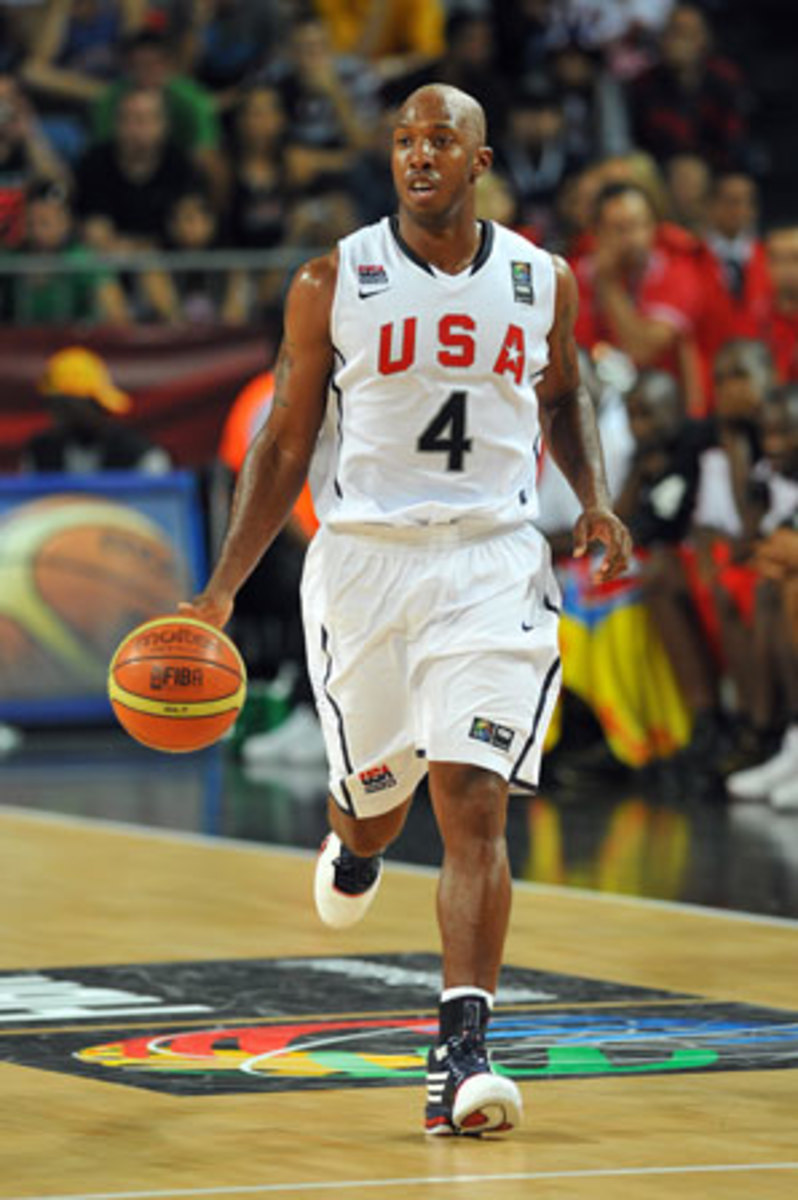U.S. shows what it's got vs. Angola
Not because of Team USA's talent. Heck, every team in the 2010 World Championship is talented. Brazil has a former Sixth Man award-winner (Leandro Barbosa) and another (Anderson Varejao) who finished third in the voting last season. Spain is loaded with NBA players, from current (Rudy Fernandez, Marc Gasol) to former (Jorge Garbajosa) to future (Ricky Rubio, Fran Vazquez). New Zealand has Kirk Penney (how is that guy not in the NBA?) China has Yi Jianlian. Australia has David Andersen.
No, the U.S. isn't feared because of talent alone. It's feared because that talent is starting to play together. Angola has never been considered a basketball power. The former Portuguese territory is perhaps best known in international hoop circles as the team that was on the receiving end of a 116-48 butt-kicking by the 1992 Dream Team in its Olympic debut.
But this Angola team picked up two wins in Group play, a lopsided victory over Jordan and a narrow triumph over Germany. Angola has Joaquim Gomes, a former standout guard at Valparaiso, and Olimpio Cipriano, who occasionally moonlights on NBA summer league rosters.
Good? Far from it, but there's little doubt that the Angolans aren't nearly as bad as they used to be.
Of course, you would have a hard time buying that on Monday, when the U.S. dismantled Angola 121-66 to advance to the quarterfinals. Four U.S. players (Chauncey Billups, Kevin Durant, Rudy Gay and Eric Gordon) scored at least 17 points, with Billups (19) leading the way.
It's hard to find flaws in anything the U.S. did on Monday. It shot a blistering 52.6 percent from the floor, including an eye-popping 47.4 percent from three-point range. Billups (5-7 from three) and Gordon (5-6) did most of the damage, capitalizing on the comfortable cushion that Angola gave them beyond the arc.
The U.S. passed well, getting 30 assists on 41 field goals. It rebounded, crushing Angola 43-22 on the glass. And despite having hot hands from the outside, it was aggressive in the paint, getting to the free throw line 26 times.
"They were very unselfish. It showed in the extra passes that were made, and I thought we stayed aggressive the whole game," coach Mike Krzyzewski said. "The couple days of practice really helped us, and the guys have responded. So I'm just pleased that we played like we practiced, which is what a coach always wants to see."
Indeed, Monday's win represented the high-water mark for this U.S. team. The sloppy play that plagued it in training camps in New York and Las Vegas was replaced by fluid movement and flawless execution. The defense was better than it had been in Group play, particularly beyond the three-point line, where Angola made just seven of 27 shots (25.9 percent).
"We're coming along," said Billups. "It takes time. This is a new team. It's the first time we've all played together as a unit. We've been together for about a month, maybe. So that is the challenge, trying to come together as soon as possible. The game [in Europe] is totally different. The floor is different as well. The three-point line, the key is different, there are a lot of differences about the games. This is something that all the teams here are used to. We're not used to it, so that's another challenge that we are trying to fight through. I feel like we've got the best players in the world, though. Even if the Kobes', LeBron's, Melo's are not here, I still feel like we've got the best talent in the world. We should still expect to be successful."
Success won't come easy. Next up for the U.S. is Russia, a team coached by highly respected American David Blatt and led by Knicks center Timofey Mozgov and former Portland first round pick Sergey Monya. After that comes a probable matchup with Brazil or Argentina followed by a possible showdown with Turkey, the home nation that has been steamrolling opponents in the early rounds.
Winning will require a polished team effort. On Monday, the U.S. showed it was capable of that.





